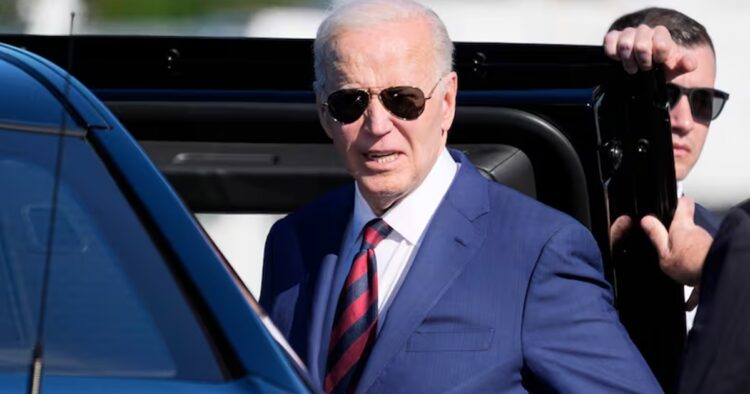The Biden administration has announced its intention to impose additional tariffs on various Chinese products, including electric vehicles (EVs), advanced batteries, solar cells, steel, aluminum, and medical equipment.
This move, coming amid a competitive election campaign between President Joe Biden and former President Donald Trump, aims to demonstrate toughness on China. However, officials claim that the tariffs are structured in a way that minimizes their impact on inflation and avoids escalating tensions with China, although retaliatory measures from China are expected.
Tariff Phases and Concerns
These tariffs are set to be phased in over the next three years, with the initial focus on products such as EVs, solar cells, syringes, needles, steel, and aluminum. While there are currently few Chinese EVs in the U.S. market, officials are concerned that subsidized models could flood the market soon.
Chinese firms benefit from government subsidies, enabling them to offer EVs at competitive prices as low as $12,000.
Objectives and Justifications
Lael Brainard, director of the White House National Economic Council, asserts that these tariffs aim to raise the cost of select Chinese goods and counter Beijing’s efforts to dominate emerging technology markets.
As per Brainard, China’s economic practices pose risks to U.S. national security and economic stability. The decision on tariffs, made under Section 301 of the Trade Act of 1974, aims to address unfair trade practices.
Tariff Increases and Impact
Under the new tariffs, tax rates on imported Chinese EVs will rise significantly, reaching 102.5% this year. Tariffs on other products like solar cells, steel, aluminum, and computer chips will also see substantial increases.
Despite concerns about inflation, a recent analysis suggests that the overall impact will be minimal, affecting only about $18 billion in imports and increasing inflation by just 0.01%.
Chinese Response and Economic Context
China has criticized the U.S. move, labeling it as bullying and protectionist. Chinese officials argue that their rapid growth in industries like EVs and clean energy is driven by innovation and market competition, not subsidies.
However, China’s economic strategy, focusing on increasing production beyond domestic demand, exacerbates tensions with the U.S., which seeks to strengthen its own manufacturing capabilities.
The EU has expressed concerns over Chinese subsidies and is considering imposing import taxes on Chinese EVs. European Commission President Ursula von der Leyen has warned about the influx of subsidized Chinese products into the European market.
The U.S. and EU share concerns about China’s dominance in strategic industries and the need for fair competition.
ALSO READ: “Biden Asserts Ceasefire Hinges on Hamas Releasing All Hostages”
Divergent Strategies and Election Implications
The issue of China’s economic practices has become central to the U.S. presidential election. While Biden advocates for targeted tariffs to protect key industries and workers, Trump favors broader tariffs against all imports.
Both candidates highlight the need for the U.S. to compete with China in advanced technologies. However, they differ in their approaches to tariffs and economic policies.
The Biden administration’s decision to impose new tariffs on Chinese goods reflects ongoing tensions between the two largest economies in the world. While aimed at addressing unfair trade practices and protecting domestic industries, these tariffs also risk escalating trade disputes and straining diplomatic relations between the U.S. and China.

















Comments